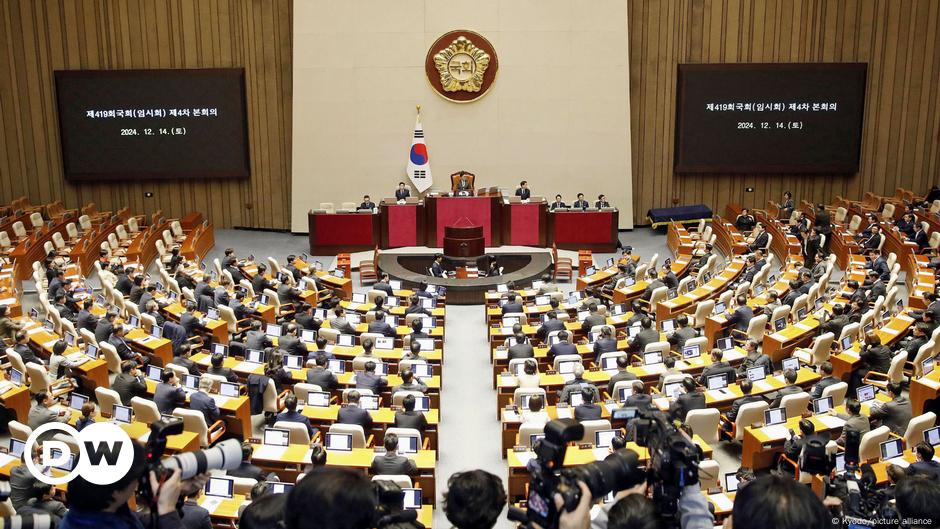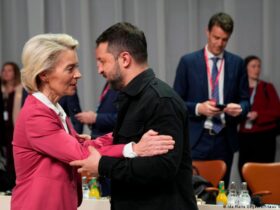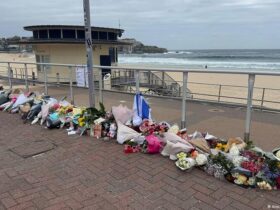South Korea’s Constitutional Court said on Monday it was holding its first meeting on President Yoon Suk Yeol’s impeachment case on the same day, with all six of its justices attending.
After parliament votes on Saturday to investigate, it will be up to the court to decide whether to remove Yoon from office or reinstate him.
Yoon is being investigated after his short-lived attempt to impose martial law on December 3.
MPs rejected it within hours, while military personnel tried to enter the National Assembly.
Yoon’s presidential powers are suspended pending the decision.
The court has up to six months to reach a decision but previous cases in 2016 and 2004 were resolved much more quickly.
If Yoon is dismissed, an election would have to be held within 60 days.
Yoon wanted for questioning on Wednesday
A joint investigation team involving police, an anti-corruption agency and the Defense Ministry said it planned to ask Yoon’s office to ask the president to appear for questioning on Wednesday as they expand their investigation. Questions remain as to whether his failed attempt to suspend Parliament activity was rebellion.
It is unclear whether the President will grant the interview request, as he and his office have so far been uncooperative with investigators in several related incidents.
Yun has defended his martial law decree as a necessary act of governance against the main liberal opposition Democratic Party, and has described its members as “anti-state forces” disrupting his policy agenda. Given the strength of the opposition in Parliament, he has had to struggle to pass the budget and other laws.
Hundreds of thousands of people, both supporters and opponents of the president, took to the streets of Seoul over the weekend amid the impeachment vote in the National Assembly.
Opposition leader demanded speedy hearing
Democratic Party leader Lee Jae-myung urged the Constitutional Court to rapidly reach a resolution and recommended a special council for cooperation between the government and parliament.
Lee lost the March 2022 presidential election by less than 1 percentage point of the popular vote.
However, Yun’s conservative People’s Power Party (PPP) criticized the proposal, saying it was an unfair attempt to seize power from the opposition.
PPP leader resigns in sign of differences over Yun’s move
Yun’s December 3 military mobilization has divided the PPP, with some members supporting the move and others opposing it.
This became even clearer on Monday, when party leader Han Dong-hun announced his resignation in Seoul.
Despite criticism from some party colleagues, Han publicly supported the bid to impeach Yun, but said he had no regrets.
“If martial law had not been lifted that night, a bloody incident could have erupted between the civilians and our young soldiers who took to the streets that morning,” Han said at a news conference.
What happened on 3rd December?
In a surprise late-night TV address just before midnight, Yoon became the first South Korean president to declare martial law in more than four decades.
The move is reminiscent of an era of authoritarian leaders not seen in South Korea since the 1980s.
Soldiers were sent to Parliament to try to shut it down.
But within hours, MPs voted unanimously to rescind martial law again, although only 60% of them were present.
After this voting the soldiers and police retreated again.
There was no major violence.
Foreign allies, not least the US, expressed relief and surprise, praising the resilience of Seoul’s democratic institutions.
msh/mr (AFP, AP, Reuters)






Leave a Reply